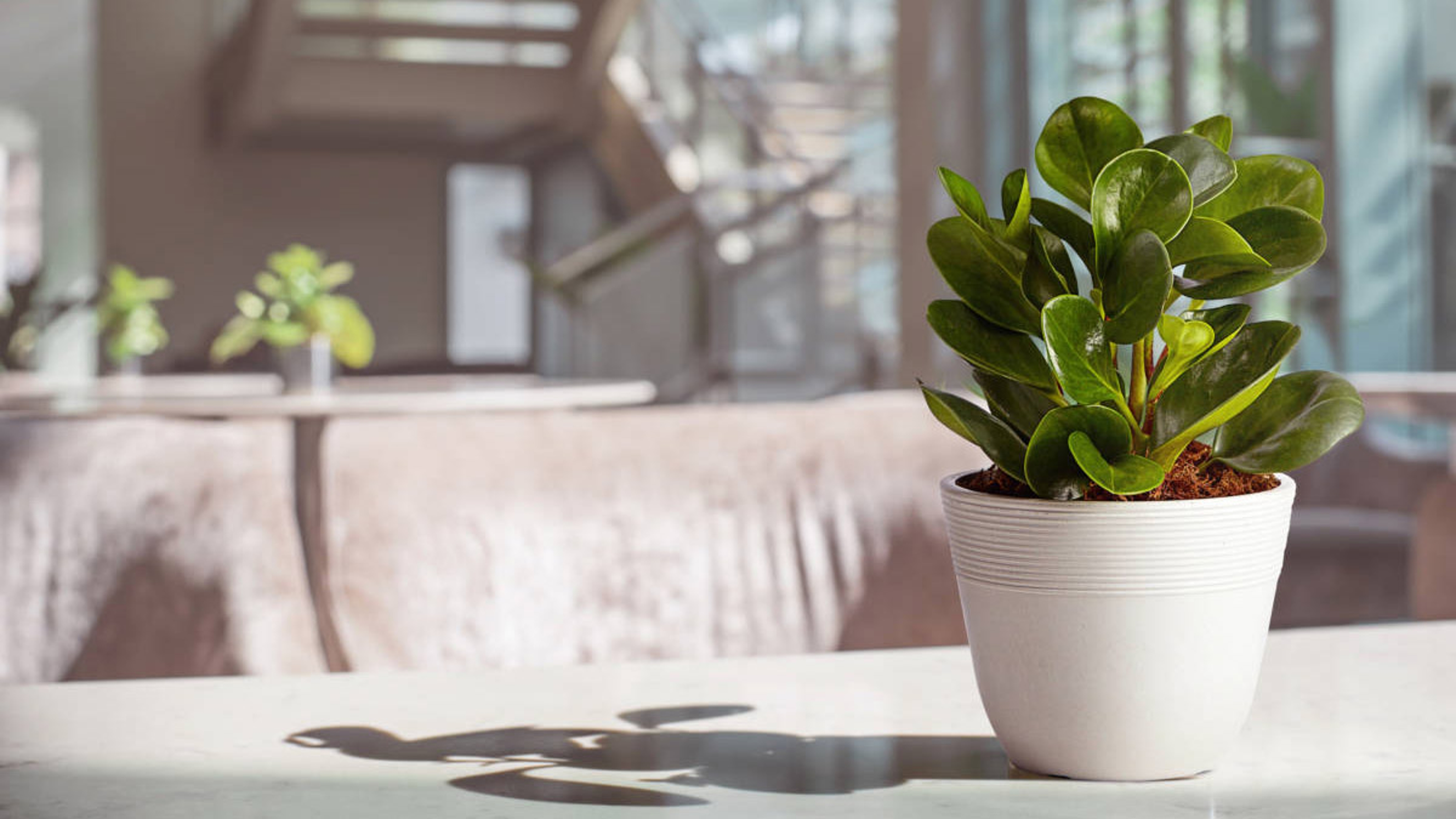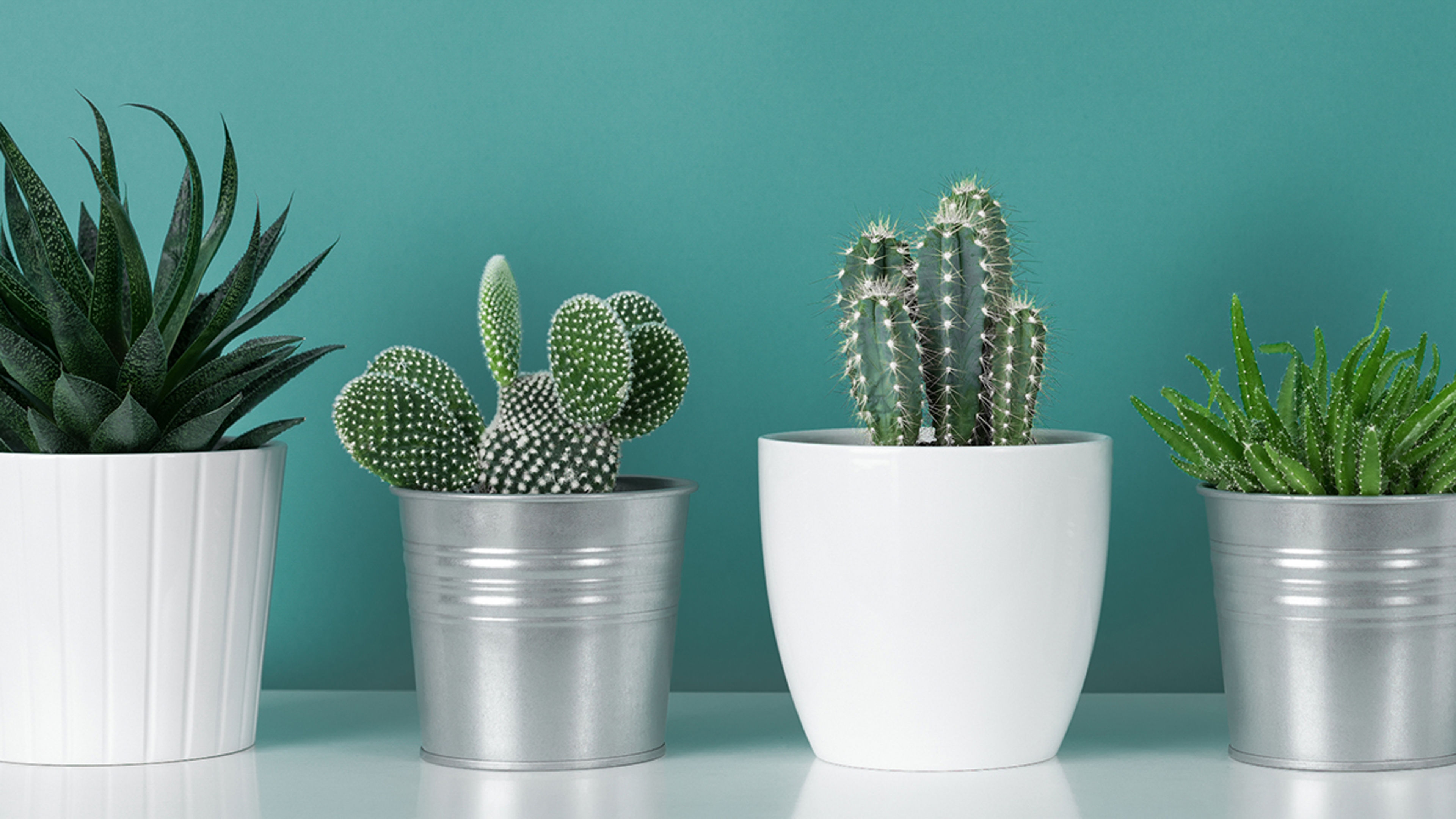Meet the 2022 Plant of the Year: The Baby Rubber Plant
Introducing the Baby Rubber Plant, 1-800-Flowers.com's 2022 Plant of the Year.
Dec 07, 2021
In retrospect, it's not hard to pick a plant of the year or even the decade. Think about the 1970s, and spider plants and ferns in macrame hangers immediately come to mind. The 1980s? Nobody would be surprised to see a Money Tree planted on Gordon Gekko's desk. And the 1990s saw the rise of orchids with clean lines reminiscent of circuit boards.
A trickier task is picking a plant for the upcoming year. It requires not just an understanding of plants and their symbolism, but also the hopes and ambitions for the coming year. For 2021, 1-800-Flowers.com captured the zeitgeist of the new year with the Red Maranta Prayer Plant for its positive vibes and peaceful nature. After 2020, who didn't want a praying plant?

And, for 2022, the experts at 1-800-Flowers.com selected the Baby Rubber Plant (Peperomia), based on how it represents optimism for the new year ahead.
“The symbolism behind the Baby Rubber Plant is really about good fortune, good luck, and happiness,” says Alfred Palomares, Vice President of Merchandising and Resident Plant Dad at 1-800-Flowers.com. “All those qualities tie back to the idea of 2022 being about joy and happiness.”
Plants are having their moment
Plants have experienced a major uptick in interest since the start of the pandemic, Palomares says. Homeowners found themselves working from the kitchen table, guest bedroom, and other spots that were decidedly not the regular office. And they looked to plants to spruce up the new work environment.
“When we were all quarantined and asked to go home, the first thing people did was buy plants,” Palomares says. “They wanted plants in their homes. They wanted to be comforted. They wanted the qualities they possess for helping clear the air and uplifting your home decor.”
The Baby Rubber Plant is an easy way to elevate the design of your home or office, thanks to its tear-drop-shaped leaves that appear to have been dipped in resin. “It's high impact in terms of its beauty that it's going to give to your home with those rich, glossy leaves,” Palomares says.
The plant's allure extends beyond its symbolism and appearance. In a nod to the fact that many people will be returning to offices in the new year, the Baby Rubber Plant is incredibly easy to maintain and won't suffer when its owner departs on business trips.
Baby Rubber Plant facts
Native to the rainforests of South America, Mexico, the Caribbean, and Florida, the Baby Rubber Plant thrives in indirect sunlight and prefers temperatures from 65 to 75 degrees. In its native habitat, it thrives in high humidity and consumes the nutrients from tree debris and other detritus of the natural environment.
The Baby Rubber Plant's scientific name, Peperomia obtusifolia, is derived from the Greek word “peperi,” meaning “pepper” and “homoios,” which means “resembling.” The plants not only resemble but are related to black pepper (Piper nigrum). The Baby Rubber Plant has also been called the Pepper face plant and more simply, the American rubber plant.
Palomares notes that the name is a bit of a misnomer. They are not used to produce rubber. And they're not all that babyish: With proper care, the plants can grow to be about a foot tall.
Caring for a Baby Rubber Plant
The Baby Rubber Plant is considered a beginner's plant because its succulent leaves retain moisture, and the plant only needs to be watered when the soil is dry. This typically ranges from once a week in the summer to up to two weeks in the winter.
It's also relatively easy to propagate. The plant grows multiple “pups,” which can be cut and replanted to produce new plants.
“It's something unique and different in terms of the look and feel,” Palomares says. “It's interesting, it's distinctive, and it's really easy to care for. All of those things that this plant stands for tie back to the sentiment for 2022.”







